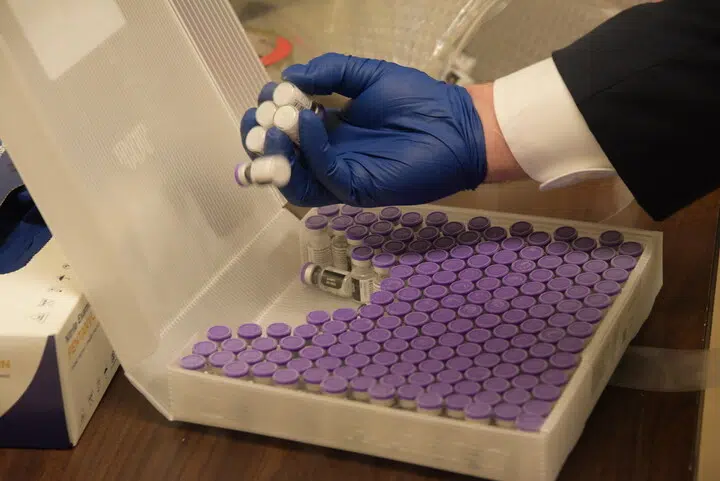
Photo courtesy of Ochsner
Louisiana’s COVID-19 Health Equity Task Force is hoping to boost vaccination rates by combating vaccine hesitancy in the Black community. The percentage of Blacks in the state who are vaccinated sits in the mid-30s per LDH data, nearly identical to the percentage among whites.
Tulane School of Public Health Dean Dr. Thomas LaVeist is the Task Force’s co-chair. He said a major driver of hesitancy amongst Blacks is the long, documented history of medical racism in the US.
“We have a long history in this country of atrocities that have happened in African American communities, and that history is not lost among American Americans,” said LaVeist. “There’s some understandable apprehension about interacting with the healthcare system.”
One of the most commonly cited examples of historic racism against Blacks by the American health care system is the Tuskegee Experiment in 1932. During that experiment Blacks were enrolled by the U.S. Public Health Service in a syphilis study, but were not informed they had syphilis only that they had “bad blood”. Instead of being given treatment, they were instead given placebos, blocked from receiving care elsewhere, and had their painful physical deterioration studied and documented.
LaVeist said to persuade more African Americans to take the shot leaders will have to acknowledge the roots of this skepticism and explain why, in spite of those concerns, getting vaccinated is still a good idea.
“You have to acknowledge that historical reality. It is a reality that people are aware of and to not acknowledge it is going to stoke additional mistrust,” said LaVeist. “Is this someone that I can really believe in when they are not willing to acknowledge that this mistrust comes from a very real place?”
LaVeist said once you get past institutional concerns he’s found most hesitant Blacks aren’t anti-vax, they just have unanswered questions. One of the most common concerns is the potential long-term impacts of getting the jab.
“That can be answered,” said LaVeist. “Most adverse effects of vaccinations occur within the first month of vaccination and if there were going to be major long-term impacts we would have started to see results of some of that by now.”
LaVeist said another common concern is related to misinformation that the vaccine creation process was rushed. He attributed that in part to Operation Warp Speed’s success in quickly manufacturing a safe and effective vaccine, but the program’s failure to educate the public about how the process was conducted.







Comments